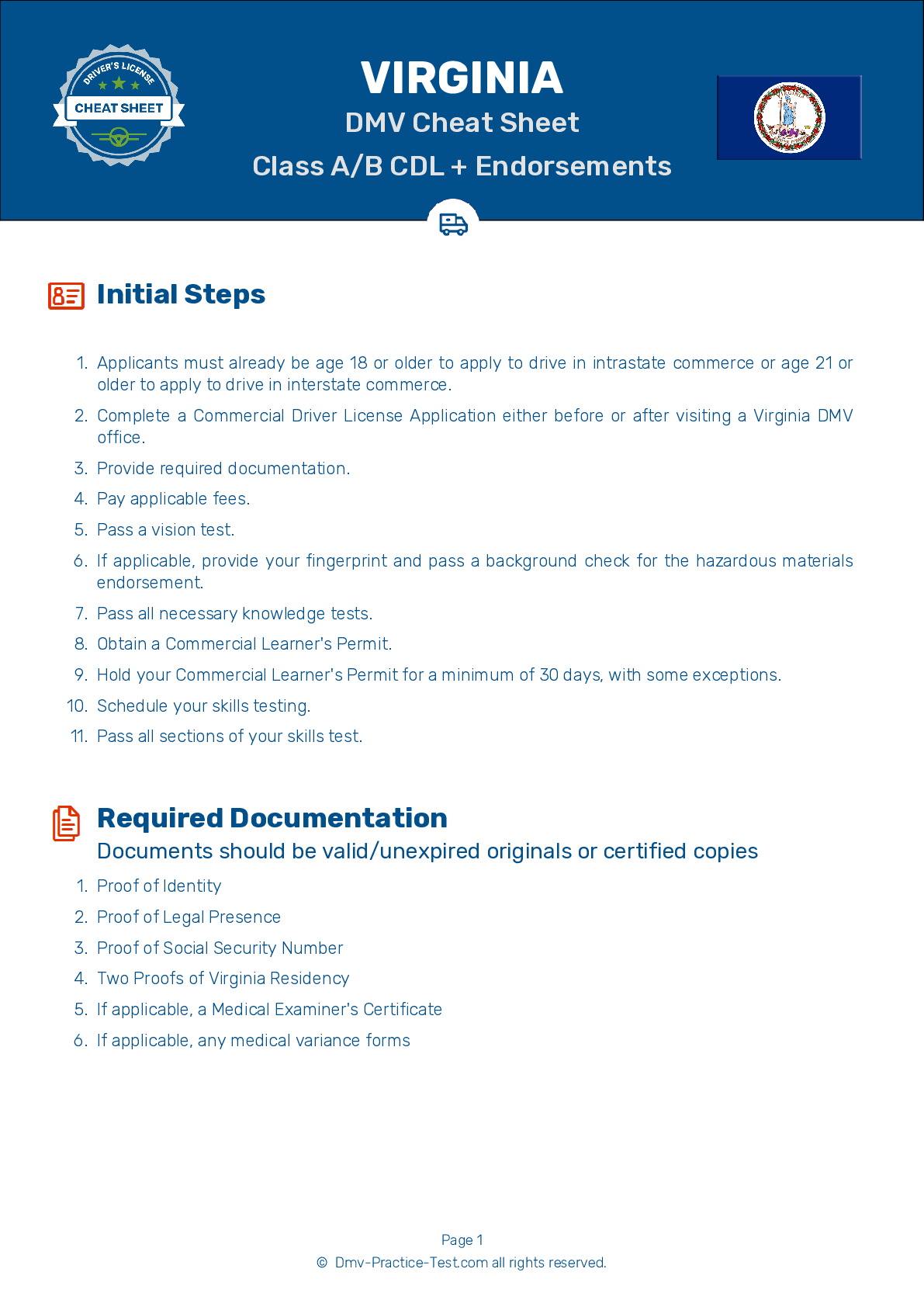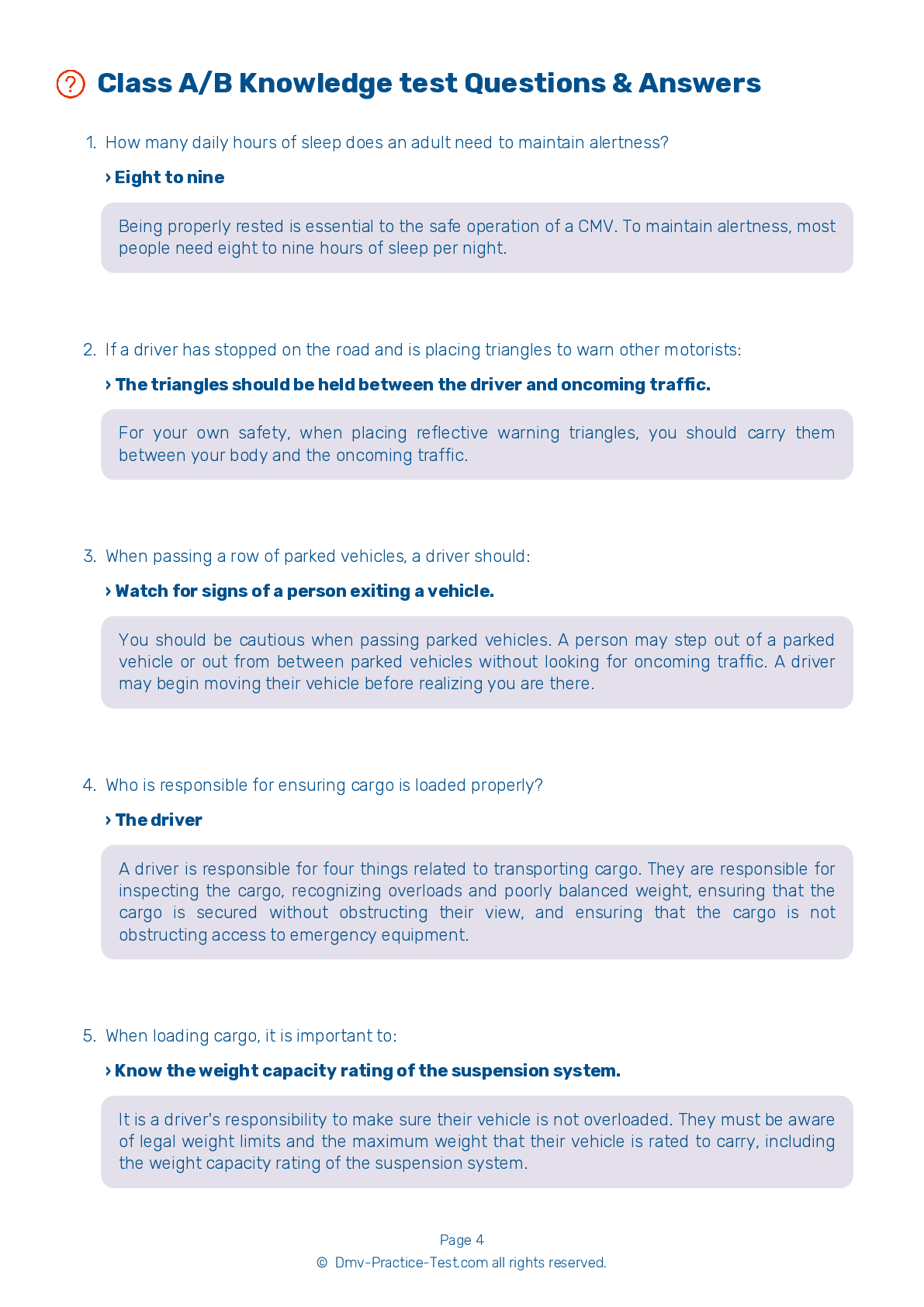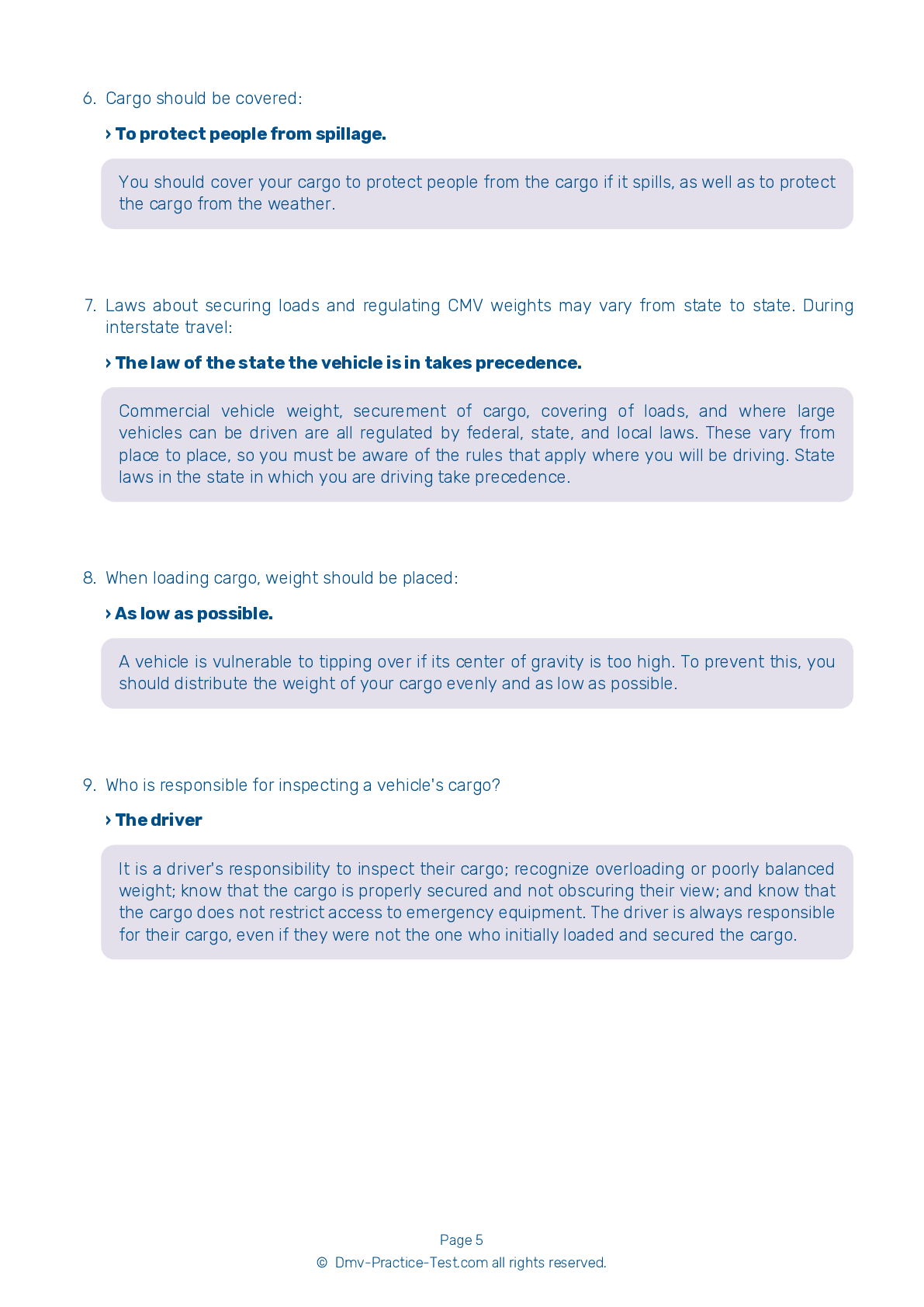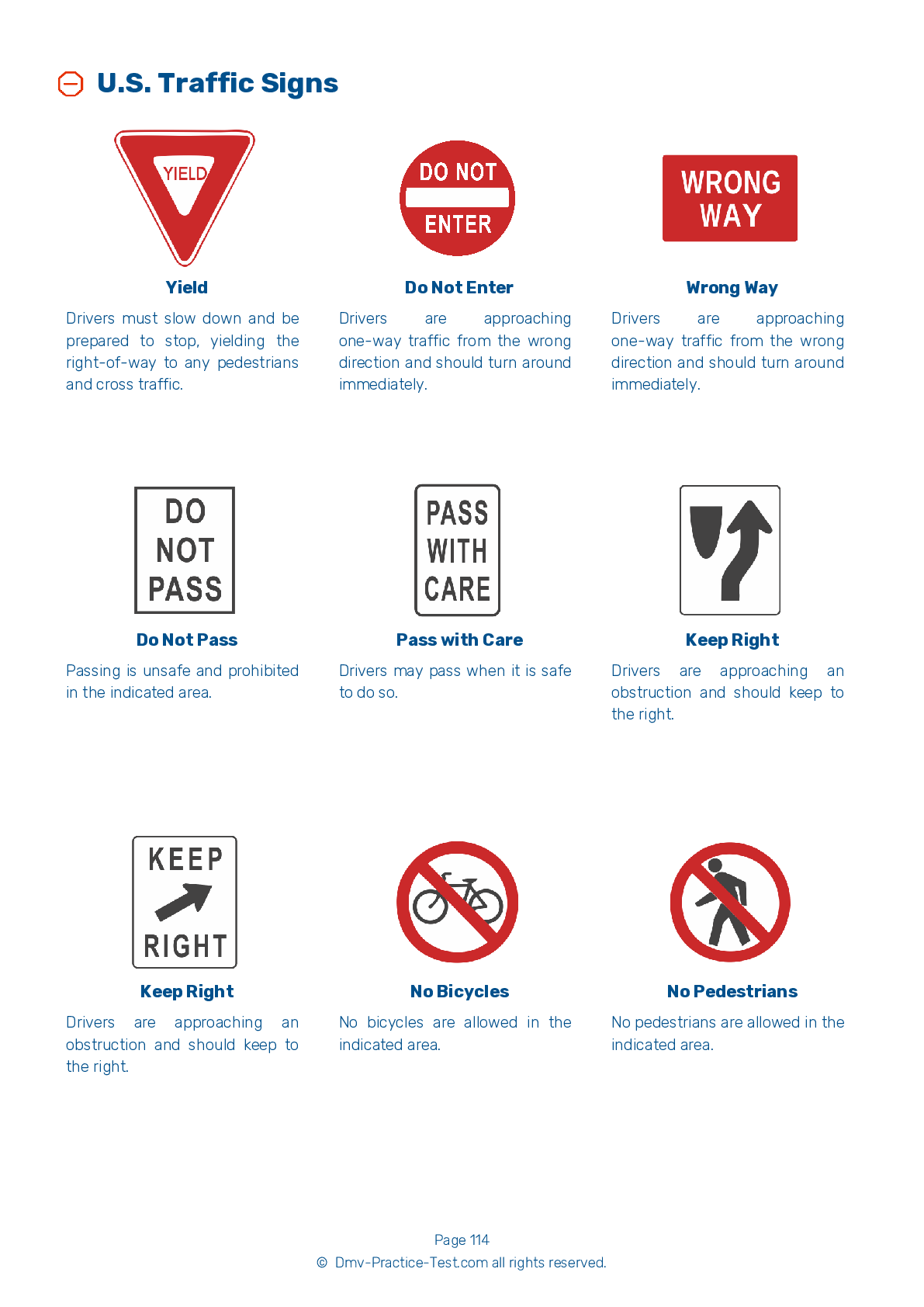Hazmat Test | Virginia 2026 #1 Page 2 of 5
On our website, we provide FREE practice - CDL hazmat test online! The official exam test consists of several obligatory parts, with all of them checking your knowledge of different blocks of road rules. If you need to obtain a VA CDL hazmat endorsement in 2026, practice as much as possible. Free sample tests published on our website will help you check and improve your knowledge and boost your grades. Please bear in mind that Virginia requirements for issuing a hazmat endorsement for CDL may vary from those established in other states.
7 . A driver should ensure that:
It is always a good idea to compare package markings and labels to accompanying shipping papers. Always make sure the shipper has displayed the correct basic description on the shipping paper and has provided the proper labels on the packages.
8 . The power unit of a placarded vehicle must carry a fire extinguisher with a minimum rating of:
The power unit of a placarded vehicle must be equipped with a fire extinguisher with an Underwriters Laboratories (UL) rating of 10 B:C or more.
9 . In addition to reading the manual, the best way to learn about transporting hazardous materials is to:
While the manual includes all of the information required to pass the hazardous materials knowledge test, you should consider reading the manual as only the first step to learning about the topic. You can learn more by reading and understanding the federal and state rules about the transportation of hazardous materials, as well as by attending hazardous materials training courses.
10 . Many products classed as poison are also:
Many hazardous materials classified as poisonous are also flammable.
11 . The identification numbers assigned to chemicals can be found:
Information about hazardous chemicals is found in the Emergency Response Guide (ERG) provided by U.S. Department of Transportation (DOT). The ERG is indexed by the proper shipping names and identification numbers of substances.
12 . What does a shipping paper describe?
Among other information, shipping papers must include a description of the specific hazardous materials being transported.
See the exact questions that will be on the 2026 Virginia DMV exam.
99.2% of people who use the cheat sheet pass the FIRST TIME
Lillian MCcranie explains how our CDL study guide was helpful in passing the exam and recommends it to everyone.
Cameron tells us how he purchased the CDL exam, and found it to be a useful tool which helped him pass the exam and find a job.



